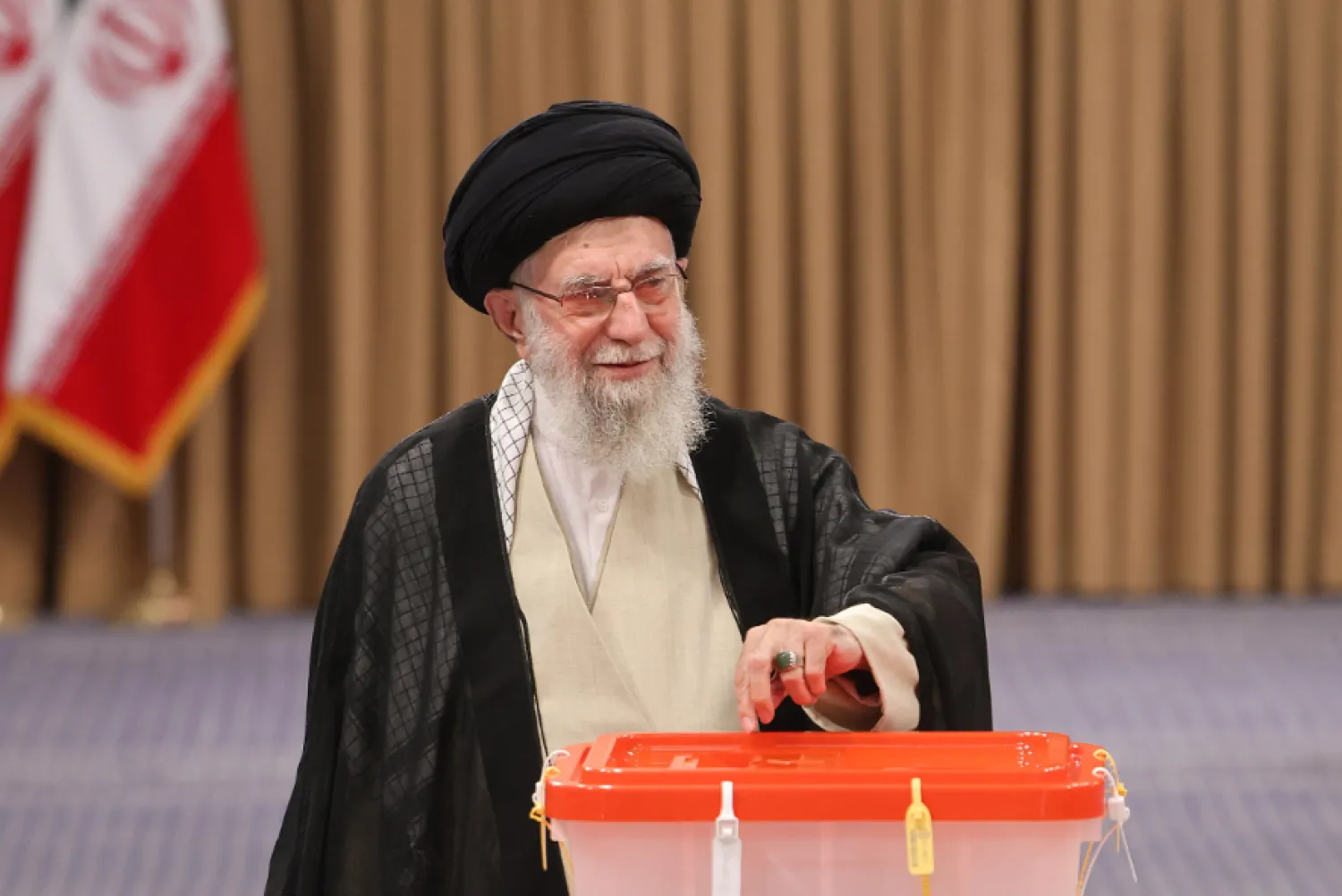Iranians voted Friday in a presidential election runoff between a reformist advocating improved ties with the West and an ultraconservative former nuclear negotiator.
The election, called early after the death of ultraconservative president Ebrahim Raisi in a helicopter crash, follows a first round marked by a historically low turnout last week.
The runoff between reformist Masoud Pezeshkian and ultraconservative Saeed Jalili comes amid heightened regional tensions over the Gaza war, Iran's nuclear standoff with the West and widespread economic discontent exacerbated by Western sanctions.
Supreme leader Ayatollah Ali Khamenei, who has the final say in all state matters in Iran, cast his ballot when polls opened.
"I heard that the enthusiasm and interest of the people is more than before, praise to God that it will be like this, and if it is like this, it will be gratifying," he said.
State television showed voters queueing in Saveh in central Iran and Kerman in the south, but AFP correspondents said polling stations appeared less busy in Tehran, AFP reported.
In last week's first round, Pezeshkian, who was the only reformist permitted to stand, won the largest number of votes, around 42 percent, while Jalili came second with 39 percent, according to figures from Iran's elections authority.
Only 40 percent of Iran's 61 million eligible voters took part -- the lowest turnout in any presidential election since the Islamic Revolution of 1979.
He said the first round turnout was lower than expected, but added that it was not an act "against the system".
Pezeshkian and Jalili have taken part in two televised debates during which they discussed the low turnout, as well as Iran's economic woes, international relations and internet restrictions.
Pezeshkian vowed to "fully" oppose police patrols enforcing the mandatory headscarf for women, a high-profile issue since the death in police custody in 2022 of Mahsa Amini.
The 22-year-old Iranian Kurd had been detained for an alleged breach of the dress code and her death sparked months of nationwide unrest.
Following the unrest, women increasingly flouted the code but police have again stepped up checks in recent months.
At a Tehran polling station, 48-year-old Fatemeh said she voted for the reformist whose "priorities include women and young people's rights."
The candidacy of Pezeshkian, a relative unknown until recently, has raised the hopes of Iran's reformists after years of dominance by the conservative and ultraconservative camps.
Jalili, noted for his uncompromising anti-Western position, mobilised a substantial base of hardline support and received backing from other ultraconservative candidates.
While campaigning, the 58-year-old criticised moderates for having signed the 2015 deal which promised Iran sanctions relief in return for curbs on its nuclear program.
Jalili said the accord, which the United States withdrew from in 2018 under then-president Donald Trump, "did not benefit Iran at all".
"I voted for Jalili because the next president should not repeat the previous mistake and sign a new agreement with the West," said Ali, a 38-year-old university professor, at a polling station in central Tehran.
"They deceived us once and that's enough. Their promises cannot be trusted," said Ali, who gave only his first name.
Pezeshkian, a 69-year-old heart surgeon, has called for "constructive relations" with Western countries to revive the nuclear deal in order to "get Iran out of its isolation".
Pezeshkian voted at a school west of Tehran where he was accompanied by former foreign minister Mohammad Javad Zarif, who helped clinch the 2015 deal.
A member of parliament representing the northwestern city of Tabriz since 2008, he has earned the support of Iran's reformists, with former presidents Mohammad Khatami and Hassan Rouhani backing his candidacy.
Casting his ballot on Friday, Khatami urged Iranians to vote "for the future and good of the country".
Pezeshkian said people were "fed up with their living conditions... and dissatisfied with the government's management of affairs."
Jalili has held several senior positions, including in Khamenei's office in the early 2000s.
He is currently one of Khamenei's representatives in the Supreme National Security Council, Iran's highest security body.









